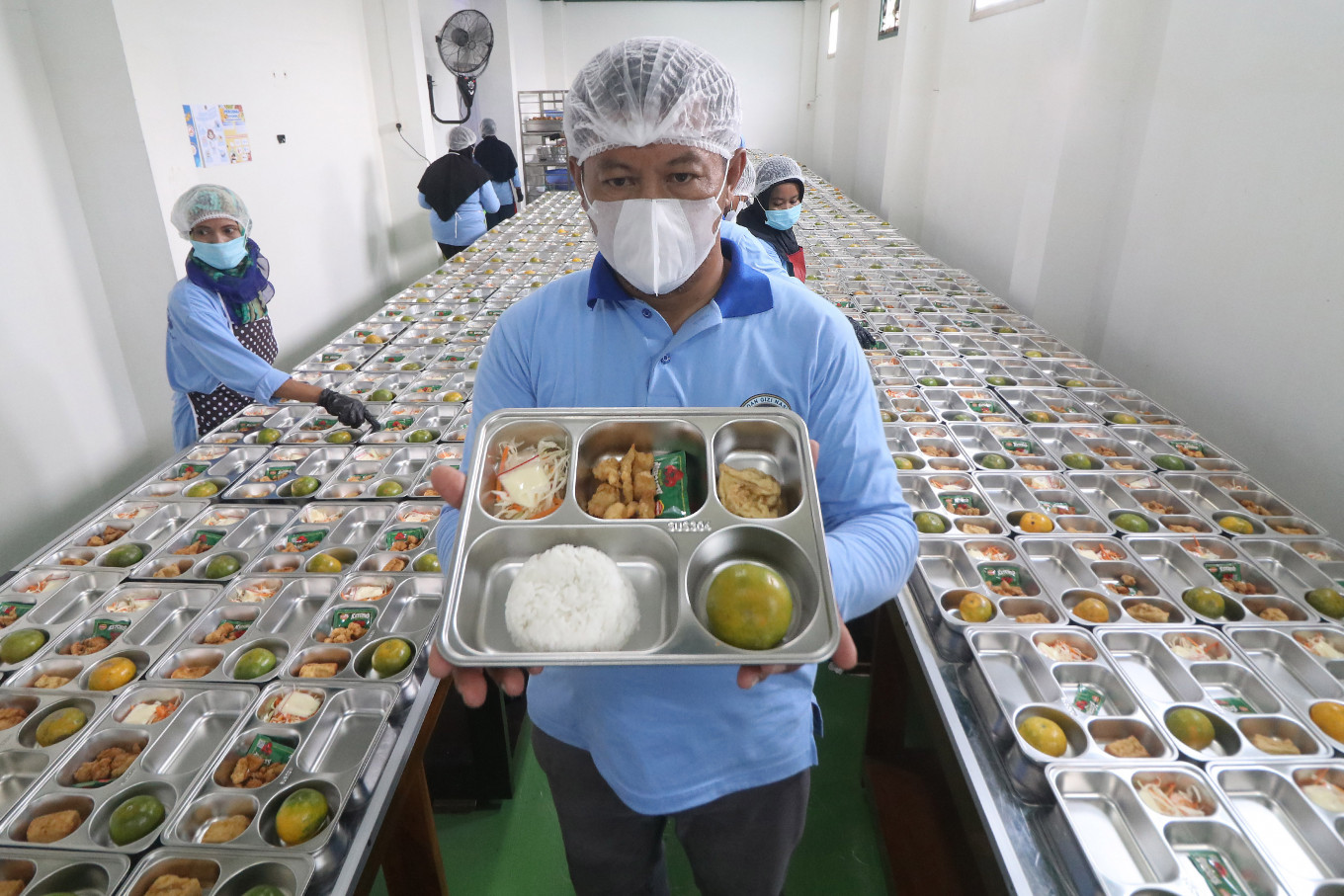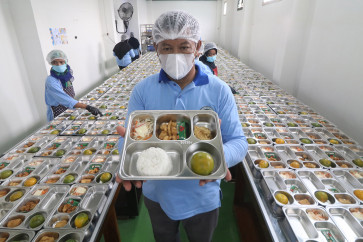Popular Reads
Top Results
Can't find what you're looking for?
View all search resultsPopular Reads
Top Results
Can't find what you're looking for?
View all search resultsMBG and the moral test of nourishing a nation
Implementation must strengthen existing MSMEs—the warung, food sellers and canteen operators who understand local taste and hygiene.
Change text size
Gift Premium Articles
to Anyone
T
he free nutritious meal program deserves another chance, but it must not repeat the same pattern. Its renewal must draw from Indonesia’s own cultural artifacts of care—its kitchens, canteens, cooperatives and community hands—guided by science and focused first on the earliest stages of growth.
The free meals program must be treated not just as an administrative initiative but as a moral system that reveals how culture, economy and governance determine a nation's ability to nourish its people. A policy noble on paper can collapse when its supporting system is unprepared. Feeding children transcends mere logistics; it is a profound test of national conscience that could reduce Indonesia’s alarming 19.8 percent stunting rate.
Stunting affects brain development, school attainment and future productivity—all dimensions of the Human Development Index (health, education and income). In system terms, early nutrition forms a balancing loop, connecting the free meals program to the national human development system: A healthier child learns better and earns more, strengthening collective capability.
The government moved swiftly, establishing the National Nutrition Agency (BGN). This speed deserves recognition; large-scale nutrition reform is difficult, yet Indonesia chose to act first.
However, early implementation revealed painful lapses. In several schools, children were hospitalized after eating contaminated meals. According to Reuters, investigations showed budgeted meals cost Rp 15,000 (90 US cents), while actual production cost less than half, with the rest lost to inefficiency and political leakage.
National reports described neat, balanced meals that were delivered late, stored poorly and supervised with minimal hygiene, leading to poisoning incidents, ingredients stored for days and E. coli contamination in Central Java.
Officials called these events a “learning curve”, even noting fatalities constituted only 0.00017 percent of total recipients. While no large reform is flawless, such remarks reveal a governance loop that learns only after harm, not before. Even one preventable death is a failure of foresight in moral accounting.



















